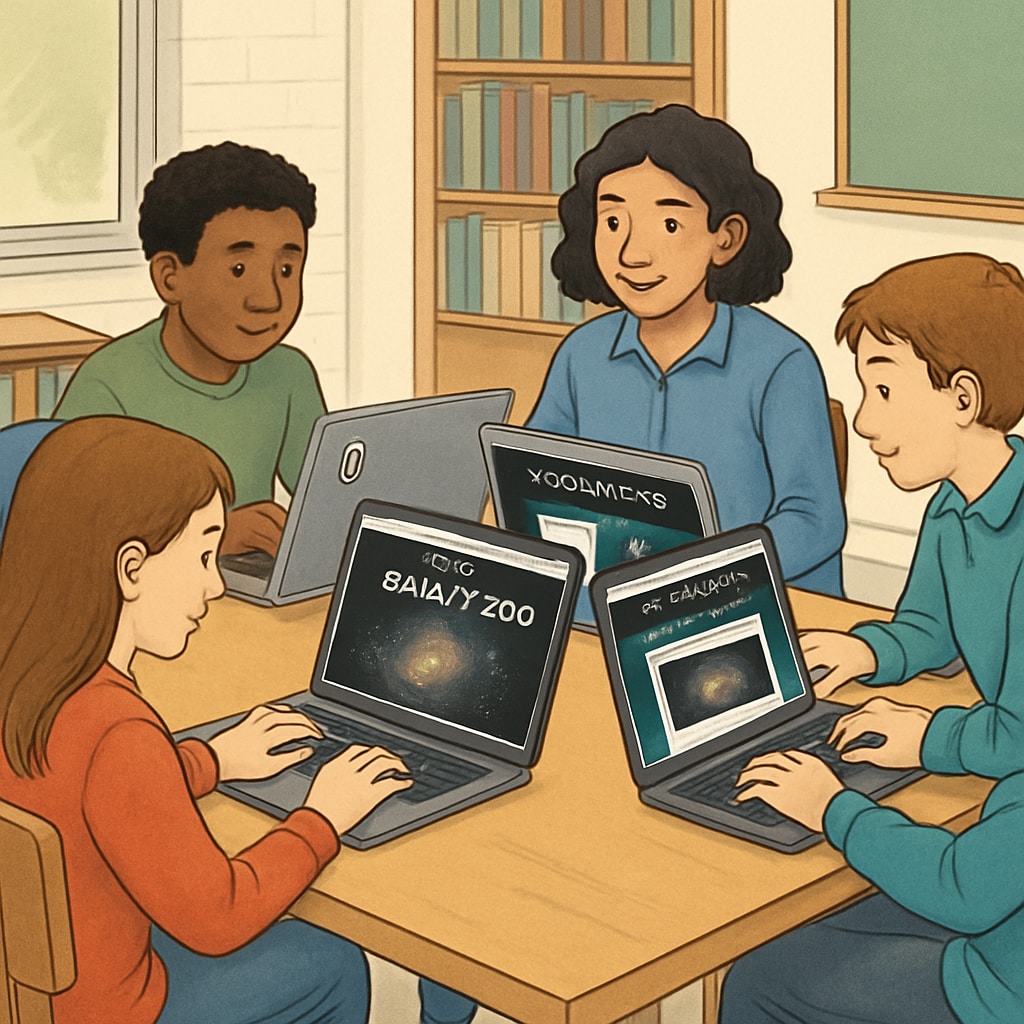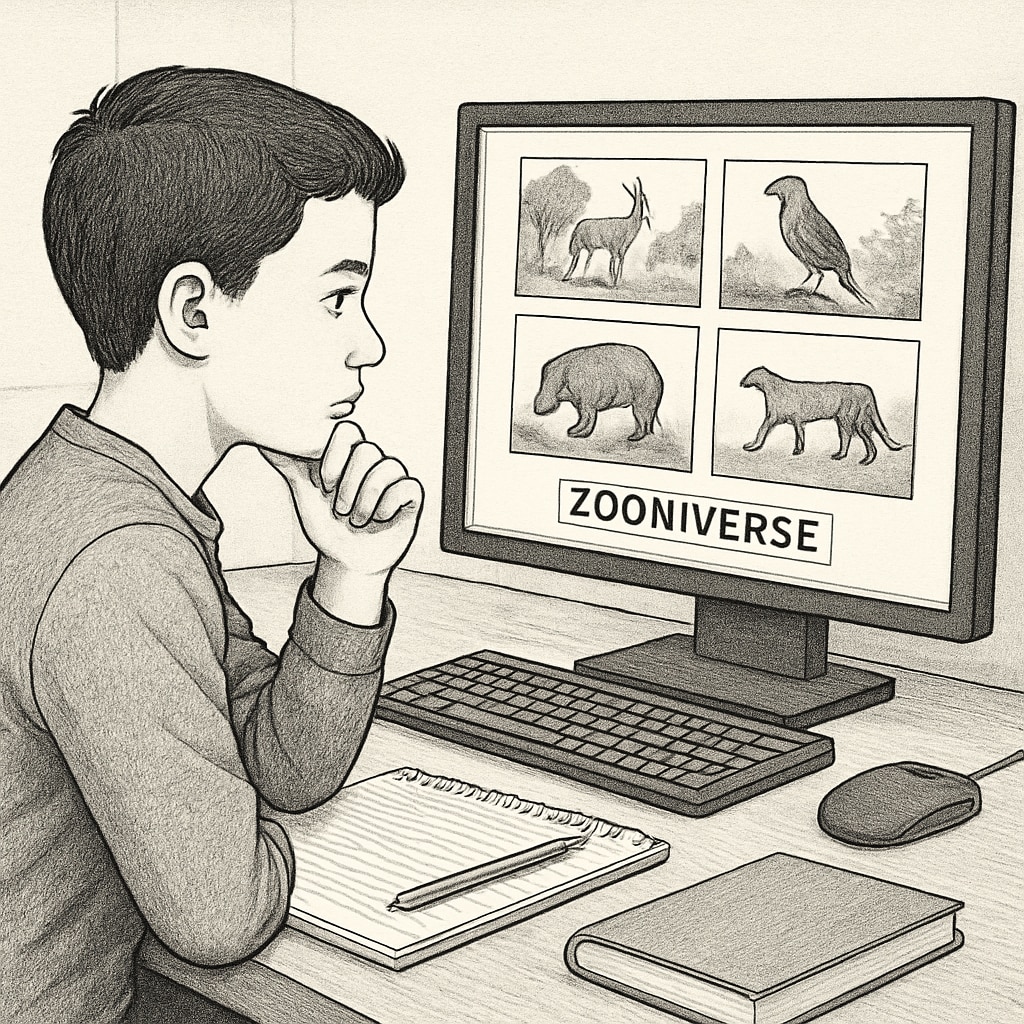Citizen science, Zooniverse, and science projects are revolutionizing education by offering K12 students the opportunity to participate in real-world research. Zooniverse, a leading platform for citizen science, connects everyday people—including young learners—with professional researchers to contribute to scientific discoveries. By integrating Zooniverse into classrooms, educators can empower students with critical STEM (Science, Technology, Engineering, and Mathematics) skills, foster global awareness, and ignite a lifelong passion for science.
What Is Zooniverse and Why Does It Matter?
Zooniverse is a web-based platform that hosts a diverse range of citizen science projects, spanning fields like astronomy, biology, climate science, and history. Since its inception, millions of volunteers have contributed to tasks ranging from classifying galaxies to transcribing historical documents. The platform is designed to be accessible, requiring no specialized training, which makes it perfect for K12 education.
For students, Zooniverse offers a unique opportunity to engage directly with authentic data and contribute to ongoing scientific research. This hands-on experience not only reinforces classroom lessons but also exposes students to the scientific process in action. Moreover, it helps them see how their efforts can make a tangible impact on the world.

Integrating Zooniverse Into K12 Education
Incorporating Zooniverse into the classroom is both simple and impactful. Teachers can align projects with curriculum objectives, allowing students to apply their knowledge in meaningful ways. For example, a biology class might participate in a project analyzing wildlife images, while an astronomy class could classify stars in distant galaxies.
Here are some tips for educators to get started:
- Choose projects that align with your lesson plans or students’ interests.
- Set clear goals for what students should learn or achieve through their participation.
- Incorporate discussions about the scientific method, data analysis, and the importance of collaboration.
- Encourage students to reflect on their contributions and explore the broader implications of their work.
By integrating Zooniverse into lessons, educators can create an environment where students actively engage in problem-solving, critical thinking, and collaboration—skills that are essential for success in STEM fields and beyond.
Benefits of Citizen Science for Students
Participating in citizen science projects through Zooniverse offers numerous educational and personal benefits for students:
- Real-world applications: Students connect classroom concepts with real scientific challenges, enhancing their understanding and retention.
- Global awareness: Many projects address issues like climate change and biodiversity, helping students understand their role in a global community.
- Skill development: Students practice data analysis, critical thinking, and teamwork, all of which are vital for STEM careers.
- Inspiration: Engaging with authentic research can spark curiosity and motivate students to pursue careers in science and technology.

Examples of Zooniverse Projects for K12 Students
Zooniverse hosts a wide variety of projects that are well-suited for K12 audiences. Here are a few examples:
- Snapshot Serengeti: Students can identify animals in camera trap images from the Serengeti National Park, learning about biodiversity and ecology.
- Galaxy Zoo: This project invites students to classify galaxies, introducing them to concepts in astronomy and data visualization.
- Floating Forests: Participants analyze satellite images to track kelp forest growth, contributing to marine science and conservation efforts.
These projects are not only educational but also highly engaging, making science accessible and enjoyable for students of all ages.
Conclusion: Inspiring the Next Generation of Scientists
Citizen science, Zooniverse, and science projects create a powerful combination for engaging K12 students in real-world research. By participating in Zooniverse projects, students gain invaluable skills, contribute to global scientific efforts, and develop a deeper appreciation for the natural world. For educators, this platform offers a versatile tool to inspire and educate the next generation of scientists, innovators, and global citizens.
Start exploring the possibilities with your classroom today by visiting Zooniverse. The future of science is collaborative, and your students can be a part of it.
Readability guidance: Short paragraphs, clear lists, and practical examples make this article accessible to educators and parents. Key concepts are explained concisely, avoiding jargon, and transitions maintain a cohesive flow.


